Medical expert of the article
New publications
Preparations
Antibacterial suppositories: application in urology and gynecology
Last reviewed: 03.07.2025

All iLive content is medically reviewed or fact checked to ensure as much factual accuracy as possible.
We have strict sourcing guidelines and only link to reputable media sites, academic research institutions and, whenever possible, medically peer reviewed studies. Note that the numbers in parentheses ([1], [2], etc.) are clickable links to these studies.
If you feel that any of our content is inaccurate, out-of-date, or otherwise questionable, please select it and press Ctrl + Enter.
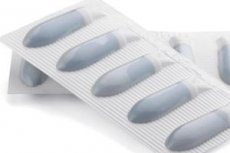
In modern pharmacology, you can find a huge number of the most diverse drugs that are produced in the form of suppositories. Antibacterial suppositories are widely used in gynecology, urology and proctology, since, due to their special form, they easily penetrate the inflammation site and eliminate it.
Indications for use
In what cases can a doctor prescribe antibacterial suppositories for you?
- To protect the vaginal mucosa from infections.
- If the patient feels constant itching, burning in the vagina for no apparent reason.
- For irregular menstrual cycles.
- For inflammation of the genitourinary system (adnexitis, oophoritis, salpingitis, colpitis, vaginitis).
- In case of violation of a woman's reproductive function.
The list of antibacterial suppositories used in gynecology is quite large. These drugs are usually divided depending on the diseases they help fight. As a rule, such drugs are used to treat uterine fibroids, thrush, cysts, erosion, cystitis, bacterial vaginosis, colpitis, parametritis, endometritis and other diseases.
Pharmacodynamics and pharmacokinetics
Let's consider the pharmacodynamics of antibacterial suppositories using the popular drug "Terzhinan" as an example.
This is a combination drug that is often used in gynecology to treat many diseases. It has anti-inflammatory, antimicrobial, antifungal, antiprotozoal and antibacterial effects. The drug contains the following components: ternidazole, neomycin, prednisolone and nystanin.
Ternidazole is a popular antifungal substance that helps reduce the synthesis of ergosterol in the cells of pathogenic fungi. This changes the structure of the cell membranes. It has activity against gardnerella.
Neomycin is a popular antibiotic that exhibits activity against gram-negative (Shigella dysenteriae, Escherichia coli, Shigella boydii, Shigella flexneri) and gram-positive bacteria (Streptococcus pneumoniae, Staphylococcus).
Prednisolone is a substance with anti-inflammatory and anti-allergic effects.
Nystatin is an antifungal component of the drug that exhibits activity against yeast-like fungi (genus Candida).
The pharmacokinetics of the drug "Terzhinan" has not been studied.
Names of antibacterial suppositories
Among the most popular antibacterial suppositories are the following drugs.
Laktonorm. This product is a new vaginal probiotic that helps deliver the necessary lactobacilli to the vagina. These suppositories are used to treat vaginal dysbiosis, vaginitis, vulvitis, bacterial vaginosis. They can also be used to prevent dysbiosis in the vagina and urogenital tract during antibacterial treatment.
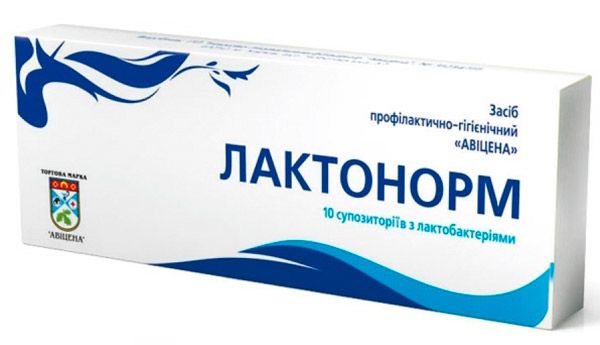
Lactonorm contains a large number of live acidophilic bacteria (at least 100 million CFU Lactobacillus acidophilus in 1 suppository), which help restore the vaginal microflora after long-term use of antibiotics, after inflammatory processes and hormonal imbalance.
For treatment, one vaginal capsule is prescribed twice a day (morning and evening) for seven days. For prevention, therapy can be continued for two weeks.
Fitoraxin. This drug has proven itself in the complex therapy of uterine fibroids, colpitis, cervical erosion. The product contains components of plant origin (propolis, celandine), potassium iodide and a polyphenol complex of gallic acid. Fitoraxin does not affect healthy cells, but it inhibits the growth of cancer cells.
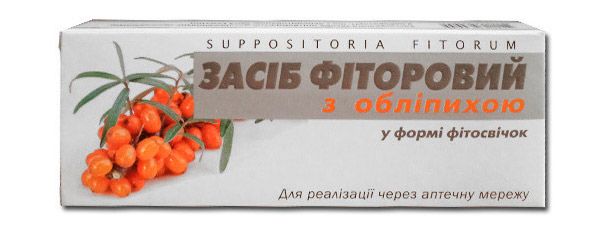
It is used twice a day, one suppository rectally or vaginally (depending on the disease). It cannot be used if there is an intolerance to the components of the drug. No side effects were identified.
Terzhinan. This drug has antiprotozoal, antibacterial, anti-inflammatory, antifungal action. It is actively used in gynecology for the treatment of many gynecological diseases (colpitis, candidal and bacterial vaginitis, trichomoniasis), as well as for their prevention.
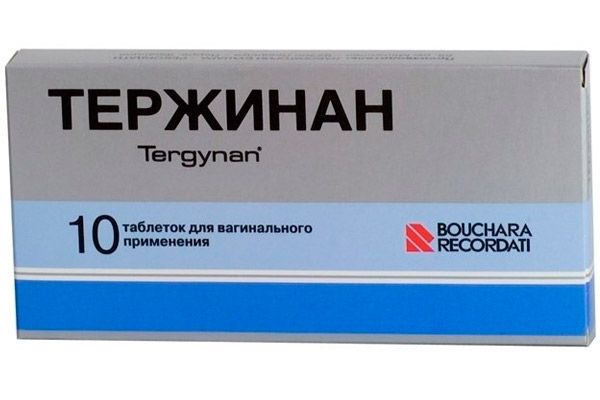
The active ingredient is ternidazole. The drug also contains: nystanin, neomycin sulfate, prednisolone sodium metasulfobenzoate. The suppositories are inserted vaginally, one suppository once a day (preferably before bedtime). Before use, it is recommended to hold the tablet under water for twenty seconds. Insert lying down. Therapy lasts on average about ten days. Prevention - six days.
Do not use the drug if you are intolerant to its components. The main side effects include: burning and itching in the vagina after administration, allergy.
Methyluracil. The active ingredient is methyluracil. This drug is often prescribed to treat bacterial cystitis, proctitis or sigmoiditis.
It is administered rectally, 1 tablet three to four times a day. The therapy can be quite long-term (from seven days to four months).
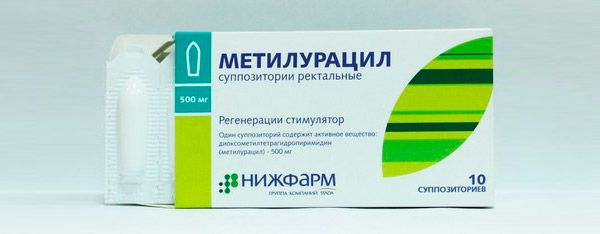
The product is contraindicated in case of intolerance to its main component. Sometimes it can cause side effects such as allergy, headache.
Antibacterial vaginal suppositories
Today, for any disease of the female genital organs, gynecologists prescribe antibacterial vaginal suppositories. They are especially important in the treatment of inflammatory processes. It is suppositories or candles that are considered today to be a unique form, with the help of which the medicinal substance can be effectively delivered to the site of inflammation, while minimizing side effects.
Colpitis is an inflammation of the vaginal mucosa. There are different types of colpitis, but suppositories are prescribed only for the treatment of non-specific colpitis. As a rule, antibacterial drugs are used, which include a broad-spectrum antiseptic. The most popular remedies for non-specific colpitis are:
- Terzhinan. Active ingredient ternidazole. Dosage: one tablet once a day for ten days.
- Polygynax. Active ingredients: nystatin, neomycin and polymyxin B. Dosage: one tablet twice a day for five to fourteen days.
- Betadine. The active ingredient is iodine. It is administered twice a day for six to twelve days.
If colpitis was caused by trichomonas, the best remedies are considered to be suppositories based on metronidazole:
- Klion D. It is administered once a day for ten days.
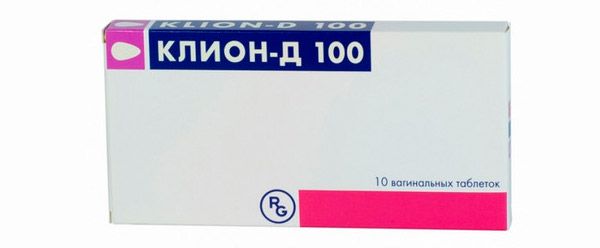
- Ginalgin. Prescribed for ten days, one tablet per day.
For genital herpes, antiviral drugs in the form of suppositories are often used. Among them, the following stand out:
- Viferon. It is administered rectally twice a day for five to seven days. The active ingredient is interferon.
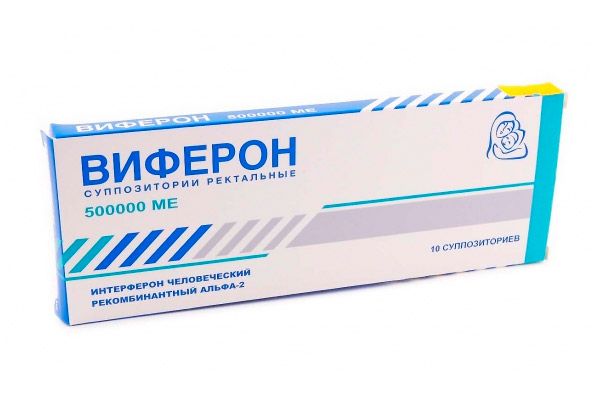
For candidal colpitis, the most popular suppositories are:
- Bificol. The product contains dried bifidobacteria. It is administered vaginally once a day for ten days.
- Atsilakt. Contains live lactobacilli. Prescribe one suppository for ten days.

Antibacterial anti-inflammatory suppositories
As a rule, inflammatory processes in the vagina and reproductive organs of women are caused by various microorganisms (chlamydia, gonorrhea). The most common symptoms of inflammation are: cutting or aching pain in the right or left side of the groin area.
Suppositories are used, which can be inserted both vaginally and rectally. The most popular preparations are:
- Movalis. Rectal suppositories with the active ingredient meloxicam. This is a non-steroidal anti-inflammatory drug. The dosage is prescribed by the attending physician and is strictly individual. The drug is not taken in case of intolerance to its main component, severe cardiac and hepatic insufficiency, during pregnancy. Taking suppositories can cause anemia, headaches, increased blood pressure.
- Longidaza. The active ingredient is longidaza. It is used to treat prostatitis, cystitis, and to prevent scarring after surgery. The drug is known to help get rid of adhesions. It is administered rectally or intravaginally, one tablet at a time (best before bedtime) for ten to twenty days. The drug is contraindicated in malignant tumors, during pregnancy, and for children under twelve years of age. The main side effects are allergic reactions (itching, burning).
 [ 15 ]
[ 15 ]
Antibacterial rectal suppositories
As a rule, antibacterial rectal suppositories are prescribed for the treatment of chronic hemorrhoids and infections in the female reproductive organs. When treating hemorrhoids, suppositories help to heal wounds in the anus faster, and also improve the regeneration of damaged tissue. The most popular rectal suppositories today are the following.
Ultraproct. The active ingredient of the drug is fluocortorone, which is a glucocorticosteroid. It helps reduce the permeability of the vessel walls, thereby reducing tissue swelling, itching and burning. Suppositories are used for anal injuries and hemorrhoids.
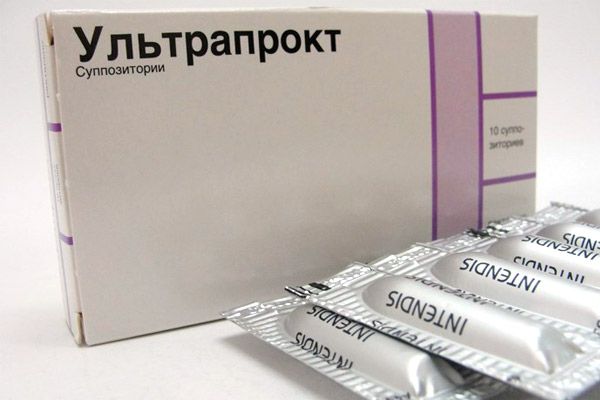
Suppositories are inserted immediately after defecation and thorough hygiene of the anus. Use one suppository per day until the unpleasant symptoms disappear completely.
The drug is contraindicated in case of chickenpox or other viral diseases, tuberculosis and syphilis in the affected area, during pregnancy and in case of intolerance to its components. The most common side effects are: itching, burning, allergy.
Posterisan. A remedy for the treatment of inflammatory diseases of the anorectal area (hemorrhoids, anal fissures, anogenital itching). The active ingredients of the drug are: hydrocortisone, inactivated cells of E. coli.
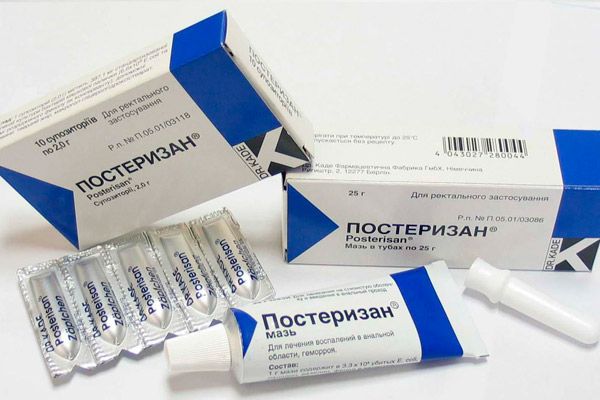
Suppositories are inserted early in the morning and late in the evening (before going to bed). Also, in some cases, it is possible to insert them every time after a bowel movement. After the main symptoms of the disease have passed, the treatment is continued for several more days to consolidate the result.
Posterisan suppositories can be used without fear even during pregnancy. The only contraindication is intolerance to the components. Side effects from using the product include: allergy in the form of dermatological reactions.
Antibacterial suppositories for prostatitis
Today, special rectal suppositories are often used to treat prostatitis. But it is worth noting that the therapy can last quite a long time, since between the rectum and the prostate there is an intestinal wall and a prostate capsule. Suppositories with antibiotics and antispasmodics, as well as with natural components such as propolis, are used to treat prostatitis.
The most popular suppositories for prostatitis are:
- Rifampicin. The active ingredient of the drug is the antibiotic rifampicin. It has a bactericidal effect on staphylococci, streptococci, clostridia, neisseria, brucellosis, rickettsia, chlamydia, and improves tissue regeneration. Suppositories are administered rectally one per day (preferably before bedtime) until the main symptoms of the disease disappear. The drug is contraindicated in case of intolerance to the main substance, in childhood, and during pregnancy. It can cause the following side effects: loss of appetite, abdominal pain, headache, blurred vision, and inflammatory processes in the kidneys.
- Prostopin. The active ingredients of the drug are: royal jelly, flower pollen, honey, propolis and bee bread. It has a wound-healing and anti-inflammatory effect. It is also used in the treatment of anal fissures and hemorrhoids. One suppository is used once a day for fifteen to thirty days. Before insertion, the rectum must be emptied. Do not use if you are intolerant to the components of the suppositories.
Antibacterial suppositories for cystitis
The most popular antibacterial suppositories that help cure cystitis are:
- Hexicon. The active ingredient is chlorhexidine, active against treponema, chlamydia, ureaplasma, gonorrhea, gardnerella, trichomonas and herpes simplex viruses types 1 and 2. Usually used at the initial stage of cystitis or for its prevention.
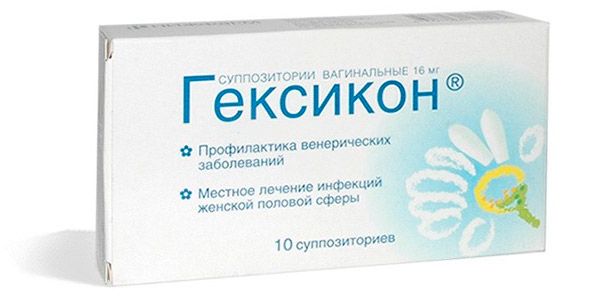
It is inserted vaginally, one suppository twice a day for five to fourteen days. For prevention, one suppository is used once a day for eight days. The only contraindication for this drug is intolerance to its components.
- Betadine. The active ingredient is povidone-iodine. Additionally, the suppositories contain macrogol. It is active against staphylococcus, fungi and E. coli. The suppositories help not only to cope with the main symptoms of cystitis, but also to normalize the vaginal microflora, relieve a woman from unpleasant burning and itching.
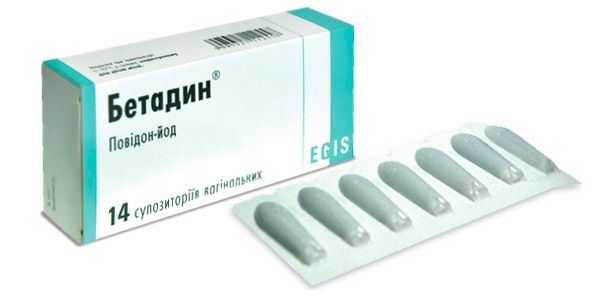
The drug is contraindicated when using other iodine products, kidney diseases, in childhood, during pregnancy and breastfeeding. When used, side effects are possible: a feeling of a metallic bite in the mouth, skin reactions, eye irritation, pain in the mouth.
 [ 22 ]
[ 22 ]
How to use antibacterial suppositories
Antibacterial suppositories are divided according to the method of their administration: vaginal (inserted directly into the vagina and are suitable for the treatment of inflammatory processes in it), rectal (inserted into the rectum through the anus).
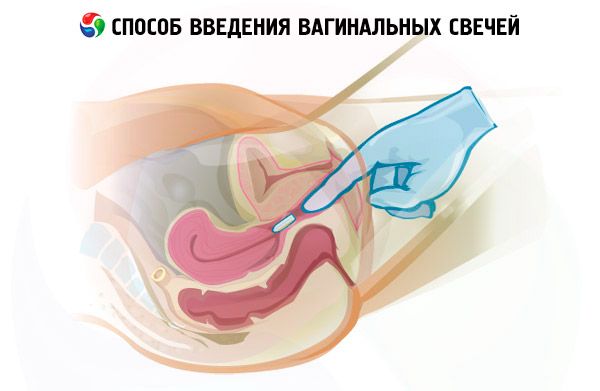

Using Antibacterial Suppositories During Pregnancy
Most antibacterial suppositories, like other medications, are contraindicated for use during pregnancy. Only in some cases can the attending physician prescribe suppositories to pregnant women. Some products (Terzhinan, Betadine, Prosterizan) are completely safe for the health of the pregnant woman and the fetus.
Contraindications for use
Before using antibacterial rectal or vaginal suppositories, you must carefully read the instructions to find out in which cases they are contraindicated for use.
As a rule, such drugs have only one contraindication: intolerance to their main active components. But in some cases (Betadine, Rifampicin, Ultraproct) there are other contraindications (tuberculosis or syphilis of the rectum, kidney disease, childhood, pregnancy).
Side effects
The main side effects of using antibacterial suppositories include various allergic reactions (including on the skin), burning, and itching. Also, in some cases, headaches, anemia, an unpleasant taste in the mouth, and pain in the abdomen are possible.
Overdose
There have been no cases of overdose with antibacterial suppositories, as the required dose of substances is carefully calculated in one suppository.
Storage conditions and shelf life
All suppositories with antibacterial effect should be stored in a place protected from small children at a low air temperature (+25 degrees). The shelf life is usually from two to three years. Do not use the drugs after their expiration date.
Attention!
To simplify the perception of information, this instruction for use of the drug "Antibacterial suppositories: application in urology and gynecology" translated and presented in a special form on the basis of the official instructions for medical use of the drug. Before use read the annotation that came directly to medicines.
Description provided for informational purposes and is not a guide to self-healing. The need for this drug, the purpose of the treatment regimen, methods and dose of the drug is determined solely by the attending physician. Self-medication is dangerous for your health.

